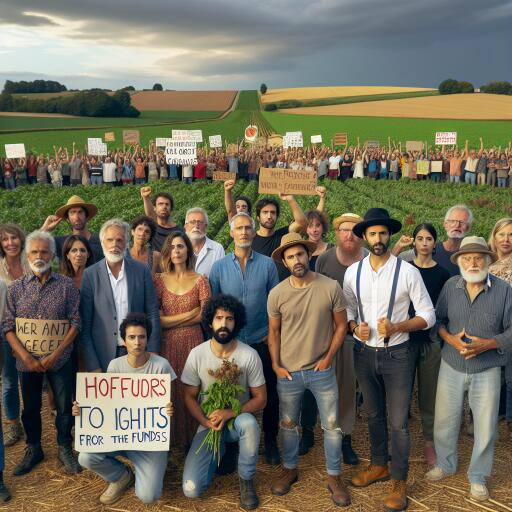
Farmers Argue for a Share of Money Dedicated to Fighting Climate Change
Extreme heat has devastated agricultural produce globally, exemplified by the ruinous effects on pineapples in the Philippines. While for some, like Esther Penunia, a small-scale farmer, this year’s losses are inconvenient, for millions depending on agriculture, climate change poses a severe threat to their livelihood. Penunia, who champions the cause of small farmers, echoes a significant concern: the stability of the global food supply relies heavily on the resilience of family farms that sustain many regions worldwide.
As global leaders convene at the United Nations climate summit, Penunia advocates for funds allocated to combating climate change to also focus on agriculture and family farmers. She passionately questions, “If we don’t support small farmers, where will our food come from? Who will engage in the essential farming, fishing, and gathering required to nourish our communities?”
Many countries, especially those in the Global South, face the challenge of financing agriculture’s adaptation to increasingly volatile climate conditions. This includes recovery efforts post-natural disasters such as typhoons, insurance for farmers against droughts, and enhancements in seed quality, fertilizer efficacy, and water infrastructure for a hotter climate. However, significant discrepancies persist between the financial needs of poorer nations—estimated at $1 trillion by experts—and the willingness of affluent nations to meet these needs.
Unquestionably, financial resources will need prudent allocation, sparking debates about how much of the climate finance should be directed toward agricultural support versus initiatives aimed at reducing fossil fuel emissions. At present, small farmers receive less than one percent of global climate finance, despite food systems from production to disposal accounting for around one-third of global greenhouse gas emissions.
Ismahane Elouafi of CGIAR underscores the escalating difficulty for farmers to adapt as global temperatures rise. Speaking at a COP29 panel, she emphasized the sector’s significant contribution to emissions, posing the critical question: “How can we solve the problem without investing in agriculture, which contributes substantially to it?”
Praveena Sridhar from Save Soil advocates for supporting agricultural adaptation efforts, noting their proven models and feasible solutions amid the global challenge of fossil fuel reduction. She posits, “While we continue to tackle the bigger puzzle, why not leverage the pieces of the puzzle we’ve already solved?”
Some experts caution that focusing on agriculture might divert attention from the primary issue—fossil fuel dependency. Zeke Hausfather, a researcher with insight into climate policy, points out the limited potential of land management changes, estimating a maximum reduction of a billion tons in emissions annually, a minuscule fraction of the global total.
Despite such cautionary notes, several entities continue to invest significantly in agricultural technologies to support climate adaptation and reduce emissions. Illustratively, numerous initiatives, including a substantial funding commitment at COP28 for a US and UAE-backed project, aim to innovate farming practices to meet climate goals.
The stakes remain high for advocates like Penunia, who continues to voice the critical need for farmers’ inclusion in global climate policies, a sentiment echoed by the absence of specific mentions in past UN climate discussions. This omission underscores the need for intensified efforts to integrate agricultural initiatives into the broader climate change agenda effectively.
In light of the persistent threats posed by climate change, supporting and prioritizing agriculture in climate finance discussions isn’t just a choice but a necessity for global food security and environmental sustainability.





Leave a Reply